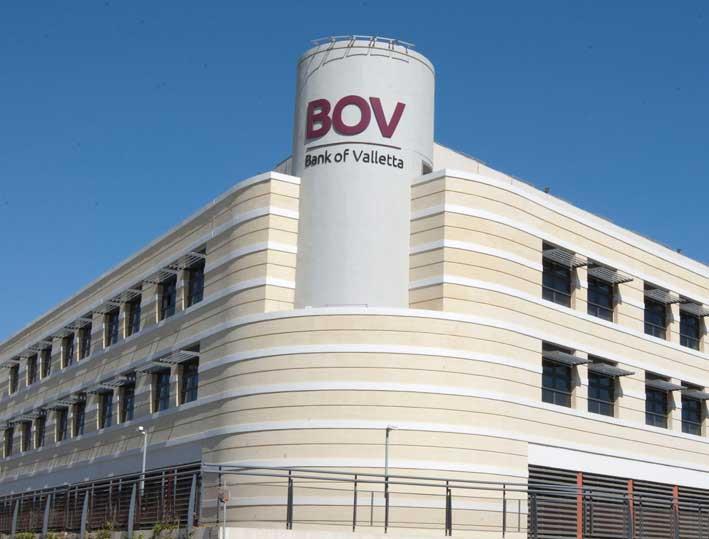The European Central Bank is applying considerable pressure on Bank of Valletta to close down bank accounts opened by Libyan nationals since at least 2013 and which have been flagged as not having been subjected to legally-required due diligence procedures, this newspaper can confirm.
This newspaper is also reliably informed that Bank of Valletta is resisting the demand, and has instead agreed to close down trusts set up in recent years by Libyan nationals. Such trusts have also raised the concern of Malta’s anti-money laundering and anti-terrorism funding authorities in that they lacked due diligence procedures when they were set up.
Documentation held by this newsroom clearly shows the Maltese authorities have been “extremely concerned” over the bank’s lax level of due diligence being applied in general to Libyans opening up accounts at the bank between at least 2013 and 2015.

The documents also show that the bank’s officials had for at least two years been informing the authorities that its anti-money laundering and anti-terrorism funding obligations were being fully adhered to when, in fact, they were not.
This newspaper has reported how documentation in its possession evidences that the bank had been turning a blind eye to its money laundering and terrorism funding obligations so as to accept business from war-torn Libya.
In the meantime, the bank has seen its customer deposit levels virtually skyrocket between 2013 and 2015, with an increase of over €2.3 billion in deposits between 2013 and 2015 – from €6.22 billion to €8.56 billion in 2015. Between 2014 and 2015 alone, customer deposits grew by €1.4 billion and by €900 million between 2013 and 2014.
Such growth is completely out of whack with the bank’s pre-2013 customer deposit growth, as well as being far over and above growth in the area registered by its main market competitor.

In one of the documents in the possession of this newspaper, the bank’s own head of compliance informs the bank’s board of directors that when services are provided to Libyan nationals: “the CDD (Customer Due Diligence) being conducted is not the enhanced CDD required at law.”
According to that document, when opening accounts for Libyans, the bank is: “relying on bank references from Libyan banks where it is very unclear who is behind these banks today”.
Further documentation held by this newsroom shows Malta’s Financial Intelligence and Analysis Unit’s (FIAU) concern over the state of affairs.
The FIAU notes in no uncertain terms that: “This statement is extremely serious and reveals that the bank has knowingly been in breach of its legal obligations under the Prevention of Money Laundering and Funding of Terrorism Regulations for a period of time, a position which runs counter to what had been stated by bank officials during discussions held over the past two years.”
The FIAU also expresses “serious doubts on the adequacy of information being collected by the bank on the source of funds (if at all), which we consider critical for the purposes of identifying suspicious transactions relating to money laundering or the funding of terrorism”.
The FIAU is the government agency tasked with the collection, collation, processing, analysis and dissemination of information with a view to combating money laundering and the funding of terrorism.
This newspaper also recently reported that, as cases in point but far from being representative of the full breadth of the practice, the Maltese authorities have expressed “serious concern” over how the bank had authorised the opening of bank accounts for two Libyan embassy security guards despite the fact that the two individuals were unable to satisfy the bank’s due diligence requirements in terms of the documentation normally required for such procedures.

The bank had, however, gone ahead with the opening of the accounts on its assumption that the two were “bona fide embassy employees” and that the accounts would be used for “bona fide transactions”.
The authorities questioned whether such a decision had been taken in the context of any Risk Based Approach (RBA) in place by the bank, and they demanded a detailed explanation of the factors the bank took into consideration “as being sufficient to lower the risk so as to disregard certain customer due diligence requirements”. They also demanded a copy of the RBA being applied by the bank throughout the business for their scrutiny.
The authorities also asked the bank what documents, data or information from “reliable and independent sources” it had collected to ensure that the security guards were in actual fact bona fide embassy employees. Moreover, the authorities wanted to know the type of monitoring the bank had carried out to ensure that the subsequent transactions being conducted were actually bona fide transactions.
Further investigations by this newsroom revealed that the Libyan security guards had the support of a very high ranking BOV official. Sources told this newsroom that such transactions were so irregular, particularly in the wake of the fall of Gaddafi when Libya had descended into total chaos, that the matter was referred to the bank’s Board of Directors.
Furthermore, an internal investigation by the bank months after the bank accounts were opened showed that one of the Libyan security guards never made use of his BOV facilities in Malta, but, rather, in Turkey.
According to our sources, when BOV officials enquired with the Tobruk Embassy in Malta whether this individual even worked at the Maltese Embassy, they were politely told to stop asking questions.
The issue the authorities have taken with the opening of accounts for the Libyan security personnel is a separate matter to the wider concern that has been expressed, and such concern stretches into other aspects of the bank’s operations.